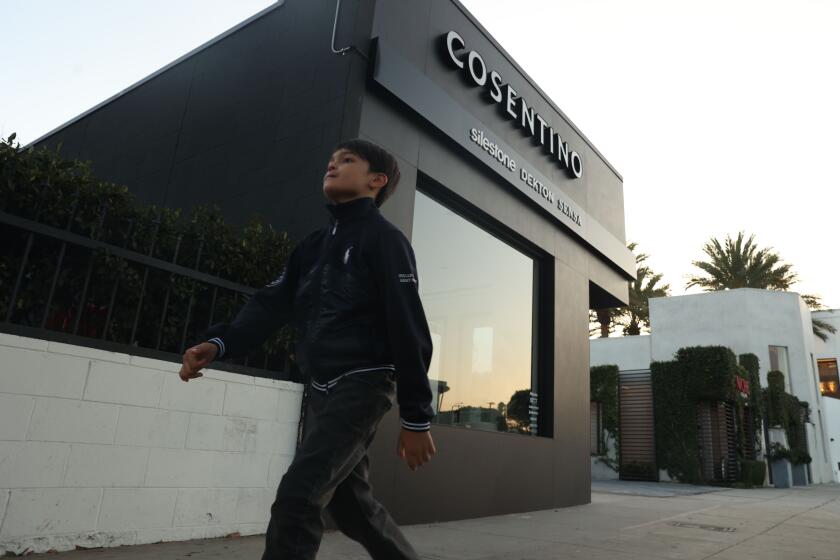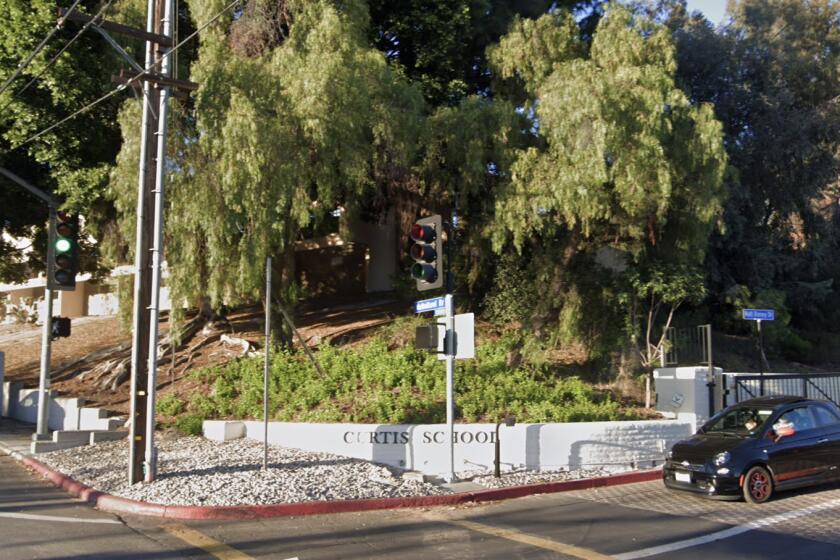Executive Director, Anaheim Community Development Agency
At a time when more businesses are leaving the state, Elisa Stipkovich has one tough job--persuading companies to stay. For the last five years, as executive director of the Community Development Agency in Anaheim, Stipkovich has managed to retain five major firms and attract five more, saving 3,500 jobs in Anaheim. The city is distinctive in its business-retention efforts: It has its own municipal water and power utilities and can offer a package of incentives for companies. Stipkovich recently spoke with Times correspondent Debora Vrana.
What is your job?
As community development director, I have several jobs. I am the executive director for the Redevelopment Agency, the executive director for the Housing Authority and also run the Community Development Agency itself. So I’m focused on redevelopment, the housing programs for the city and economic development.
As part of our economic development strategy for the city of Anaheim, we have focused on business retention and attraction. We felt the highest priority was keeping the businesses that we had. Because frankly, some businesses have left the city. But we are also working to attract new businesses to Anaheim.
How would you characterize the economic climate you operate in?
These are very difficult times. Some of the most difficult times we’ve seen in California since I’ve been here, which is about 20 years. We are being hit by the overall recession, the loss of jobs in the defense industry and a perception by businesses that there is an over-regulated, negative business climate in California.
What do you say to a local business that says, “Look, we’ve got a better deal in Nevada. We can pay cheaper rent, our workers get cheaper housing, and it’s safer and the schools are better”?
And that does happen. There are some things we can help with as a city and there are some things we can’t compete with. It’s very tough for us to compete with the lower costs of land, the lower costs of labor, and in some cases the lower costs of utilities. But if a company really doesn’t want to leave the area and wants to look at the bottom line of staying, we do offer incentives that will make it maybe not equivalent to what they could do in another state, but getting it close enough to where they will stay.
Many people like the labor force here, it’s a more highly trained labor force. We offer building rehabilitation loans and utility incentive programs. We also offer job training programs to employers to try to (persuade) them to stay here.
How do you persuade a company to stay without giving away the store?
We always like to see that there is a plus to us in the end. For instance, there are deals we’ve done where we have offered to write down land for a new facility. We’ll say if you go into this area, we’ll work a deal between the property owner and the tenant. So that as property values increase as a result of the company being located there, we tell the company that it will get back some of those property taxes. But usually we want to see the net bottom line to the redevelopment agency should be a plus, we get a new building and they get some of the money back.
Give me an example of a local business you talked into staying.
Well, Micro Technology Inc. is an example of a company that was looking to leave to other states. I think Denver was mentioned. They were a high-tech business that was growing very rapidly and had a facility here in Anaheim. We liked the company and really wanted them to stay. So we worked with them and the property owner in order to do an over-time rebate of property taxes to them, to bridge some gaps they had.
BACE Plastics Group Inc. is another example of an Anaheim firm that was expanding rapidly and looking to leave the area. We sat down and helped them move into an existing facility and helped them rehabilitate the building. And they managed to stay in Anaheim, keep all the jobs here and they have a fantastic facility.
Many cities are working to keep local businesses. What are you doing that’s different?
I think other cities are doing a lot of the things we are. The unique thing about Anaheim is that it’s always been a pro-business environment and we have our own utility company here so we can work directly with our utilities, as opposed to working with a private utility company. We go out as a team to work with business. This is particularly an advantage when you are working with a manufacturer, a high user of utilities. That can make or break a deal, and it has in many cases.
How do you know if a local business is unhappy?
We have been doing round-table meetings involving the mayor, members of the city council, myself, the city manager and the utility officials where we invite a local industry and ask them to tell us what they think of Anaheim. First of all we want them to know we are here and we do care.
Is California doing enough to promote a pro-business environment?
The state is starting to. The Department of Commerce is trying to create a marketing program for the state of California. But I think we are way behind many of the other states. And I think for good reason. California has not had to go out and market itself, but now we are saying, “People are leaving and how do we stop that outward migration.”
Is the economy starting to turn around?
I feel optimistic that we have been through the worst of it. Particularly with the defense cuts. That has been extremely hard on Anaheim. We saw a major decline in Rockwell, we saw Hughes close up an operation here, Northrop close up an operation here. Now it’s a matter of the state and the cities trying to stay competitive. I think as long we are aware of companies looking to leave, I think in most of the cases we have been able to (persuade) them to stay.
On competition between cities for businesses...
“Some companies play on that. Sometimes I will call a city to verify something or make sure we’re not being used to pit one city against another. It’s something we watch for.”
On the state’s role in keeping businesses here...
“I’d like to see the state play a stronger role in marketing itself, not only in this country but in other countries as well.”
On complaints by local businesses...
“The issues they care about usually have to do with crime and the high costs of their operations. They want to know what the city can do to help.”
On her agenda...
“We currently talk to about 65 businesses. Some of those turn into actual deals. The names come from meetings and from newspaper advertisements we place. More and more businesses are learning that we do care.”
More to Read
Sign up for Essential California
The most important California stories and recommendations in your inbox every morning.
You may occasionally receive promotional content from the Los Angeles Times.










